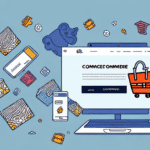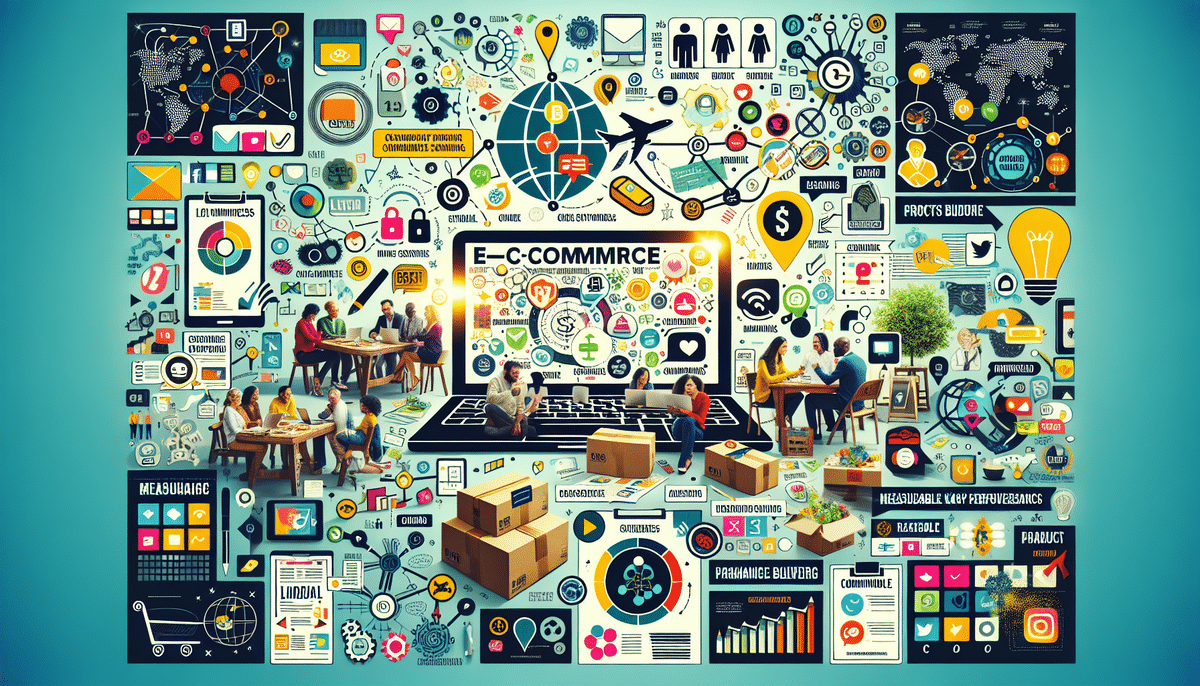Organizing Ecommerce Community Building Events: Tips and Strategies for Success
In today's highly competitive ecommerce landscape, building a strong community around your brand is essential to success. Community building events provide a powerful tool for engaging with customers, generating positive word of mouth, and increasing brand loyalty. However, organizing a successful community event takes careful planning, effective promotion, and a deep understanding of your target audience. In this article, we will explore best practices and strategies for organizing successful ecommerce community building events.
Understanding the Importance of Community Building Events for Ecommerce
Community building events are a powerful tool for ecommerce businesses to build brand awareness and engage with a wider audience. These events can take many forms, including charity events, webinars, product launches, and social media contests. When done correctly, community building events can result in increased customer loyalty and advocacy, as well as drive leads and increase sales conversions.
Benefits of Community Building Events
- Enhanced Brand Loyalty: Engaging directly with customers fosters a sense of belonging and loyalty.
- Valuable Feedback: Events provide opportunities to gather insights and feedback to improve products and services.
- Thought Leadership: Hosting webinars or speaking at industry conferences can establish your business as a leader in the field.
- Increased Exposure: Events can generate positive word-of-mouth and expand your brand’s reach.
According to Shopify, businesses that actively engage with their communities see a 20% increase in customer retention rates.
Identifying Your Target Audience for the Event
Before organizing a community building event, it's essential to identify your target audience and their needs. This will help you determine the type of event that will resonate with your audience and ensure that the event is well-attended.
Conducting Market Research
Conduct market research to determine the demographics, interests, and pain points of your target audience. Use surveys, focus groups, and analytics tools to gather data.
Considering Accessibility and Inclusivity
Consider the location and accessibility of the event for your target audience. Ensure that the venue is convenient and accessible to all participants to foster an inclusive environment.
Planning Your Community Building Event
Choosing the Right Type of Event
Select an event format that aligns with your audience's preferences and your business goals. Options include:
- Charity Events: Suitable for socially conscious audiences.
- Webinars: Ideal for sharing knowledge and establishing expertise.
- Product Launches: Perfect for introducing new products to early adopters.
- Social Media Contests: Engage a broader online audience.
Setting Clear Objectives and Goals
Define what you aim to achieve with your event, such as:
- Generating leads
- Increasing brand awareness
- Improving customer engagement
Ensure that your goals are measurable to assess the event's success effectively.
Creating an Effective Plan and Timeline
Develop a comprehensive plan that includes:
- Budget Allocation: Allocate funds for venue, catering, marketing, and other essentials.
- Timeline: Establish deadlines for each phase of event planning to stay on track.
- Contingency Planning: Prepare for unexpected challenges such as weather changes or technical issues.
Building a Strong Team
Assemble a dedicated team with diverse skills to handle different aspects of the event. Assign roles and responsibilities clearly to ensure smooth execution.
Promoting Your Community Building Event Effectively
Effective promotion is key to ensuring that your event is well-attended and achieves its objectives.
Multi-Channel Marketing Approach
- Social Media: Utilize platforms like Facebook, Instagram, and LinkedIn to reach your audience.
- Email Marketing: Send personalized invitations and reminders to your subscriber list.
- Content Marketing: Create engaging content such as blog posts and videos to generate interest.
Collaborating with Influencers and Partners
Partner with industry influencers and local businesses to expand your reach and lend credibility to your event.
Creating a Sense of Urgency and Exclusivity
Encourage early registrations by offering discounts or exclusive perks for early sign-ups. This strategy can significantly boost attendance rates.
Measuring Success and Learning from Past Events
Evaluating Key Metrics
- Attendance Rates
- Engagement Levels
- Sales Conversions
Use tools like Google Analytics and CRM systems to track these metrics.
Gathering Feedback
Collect feedback through surveys and focus groups to understand attendee satisfaction and areas for improvement.
Refining Strategies for Future Events
Analyze the data and feedback to refine your event planning strategies. Stay updated with industry trends by following sources like Forbes Ecommerce and attending relevant workshops.
Maintaining Strong Relationships Post-Event
Building lasting relationships with attendees ensures sustained engagement and loyalty.
Follow-Up Communication
Send thank-you emails, share event highlights, and provide exclusive content to keep the conversation going.
Ongoing Engagement Strategies
- Regular newsletters
- Exclusive discounts for event attendees
- Invitations to future events
Implementing these strategies can help maintain a vibrant and active community around your brand.
Conclusion
Community building events are a powerful tool for ecommerce businesses to build brand awareness, engage with customers, and drive leads and sales conversions. By following these tips and strategies, you can organize successful community building events that meet the needs of your target audience and help you achieve your business goals.




















